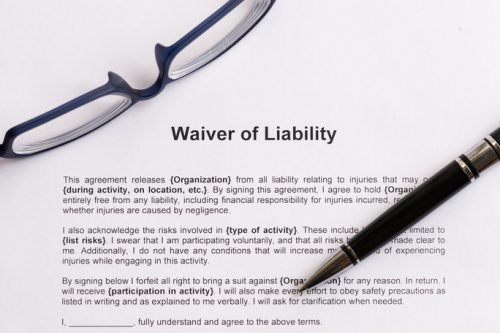
There are a variety of circumstances in which a person may be obliged to sign a liability release. Many individuals sign them without giving them a second thought or considering what they would do if they were hurt. Continue reading to find out more about liability waivers and how they may affect your ability to pursue a personal injury claim.
If you have been injured in an accident in which someone else was at fault, contact The Law Offices of Larry H. Parker at 800-333-0000 for a free legal consultation.
Is it necessary for me to sign a liability waiver?
Customers or clients are frequently required to sign a waiver agreeing that they will not sue the company if the client or customer takes risks. While you are not legally compelled to sign the waiver, it is probable that if you do not sign it, the firm will not enable you to participate in what they are offering.
What is the distinction between ordinary and grave negligence?
If you sign a waiver and are hurt, your ability to claim is primarily determined by whether the damage was caused by ordinary or egregious negligence. Ordinary negligence is defined as failing to take ordinary precautions to avoid causing injury to another person. A major deviation from the care a normal person would offer in the same situation is classified as gross negligence.
Consider the following scenario: When an employee of a neighborhood rec facility goes about doing rounds, he or she fails to notice that a bolt has come loose on a piece of potentially dangerous equipment. This is most likely common carelessness, and the release signed to utilize the rec facility would cover it. On the other hand, if an employee notices a missing bolt but does nothing about it, this may be deemed gross negligence, and the waiver may not be valid.
In California, are liability waivers always enforceable?
No. They are enforceable only if the buyer accepts the risk of ordinary carelessness. Liability waivers cannot be used as a justification for injuries caused by gross negligence, willfully wrongdoing, or recklessly, according to California law.
Liability waivers must also follow all applicable state and federal laws. They might not be enforced if they aren’t. Finally, the law demands that the liability be stated clearly, explicitly, and unequivocally. They could not be enforceable if they are contained in small print or buried deep inside a document.
Should I sign a liability waiver?
We can’t offer you a definitive yes or no since there are too many factors in each instance. If you’re going to sign, be sure you’ve done your homework. Look into the firm to discover if there have been any safety concerns raised. Inquire about the land you’ll be working on or the equipment you’ll be utilizing. Do not sign a waiver without first reading it, and if you are hurt after signing it, speak with a personal injury attorney to learn about your rights. Contact The Law Offices of Larry H. Parker at 800-333-0000 for a free legal consultation.



